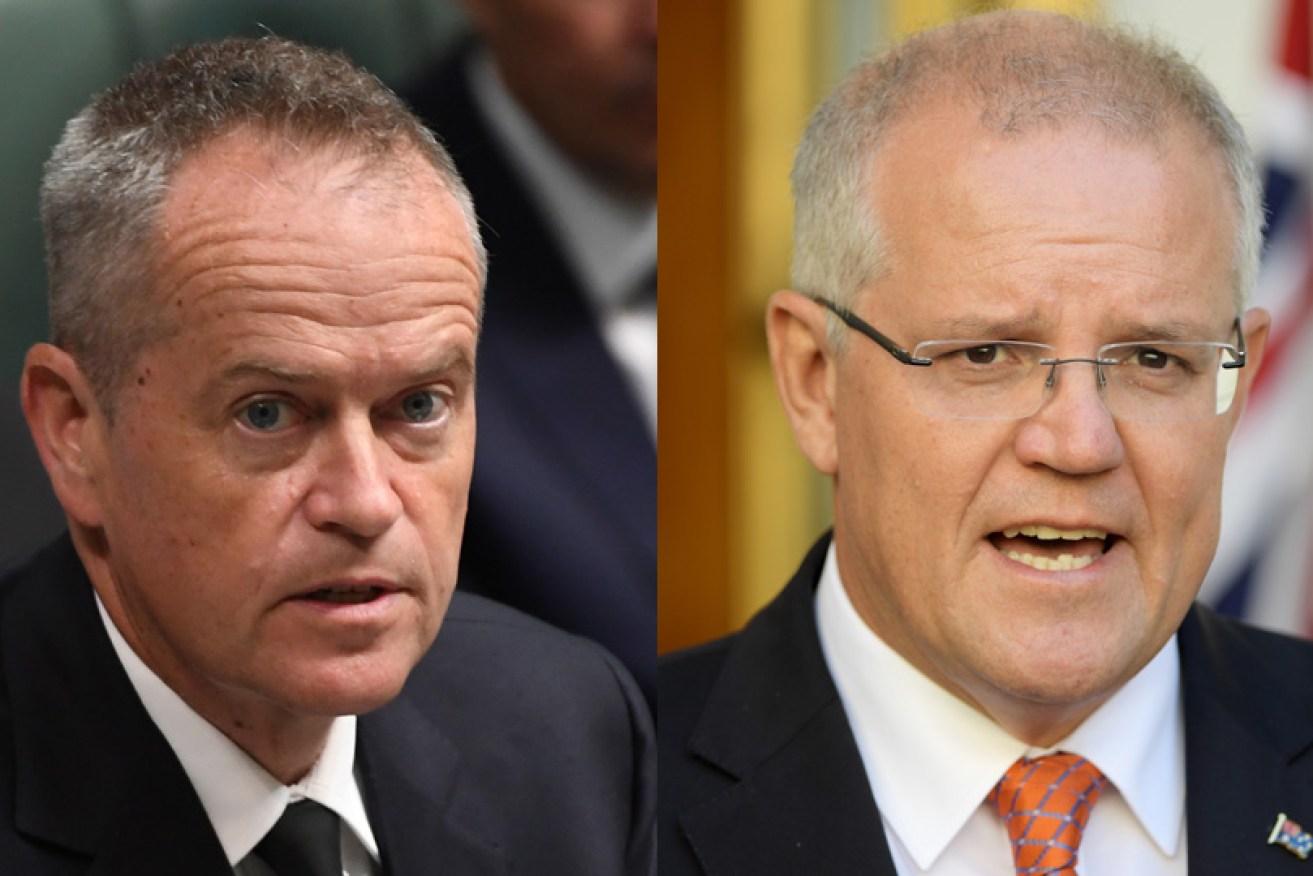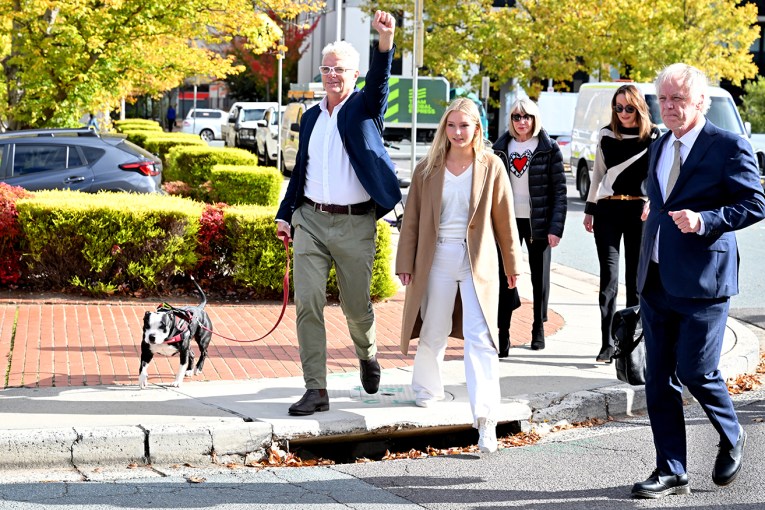Election 2019: The T-word that will decide the next election. And it’s not ‘tax’


For voters whose expectations have been corroded by cynicism, the solution might be to back minor parties and independents. Photos: Getty
Australian voters already know the two main contenders in the upcoming federal election – Scott Morrison and Bill Shorten – want the political battle to be fought on trust. This major theme emerged on budget night and has been a constant refrain since then.
But the problem is that voters have different perspectives on what trust means, and even then they don’t trust politicians very much anyway.
Does this make a trust-based election campaign a huge risk for the major parties at a time when they need to maximise their primary votes?
Treasurer Josh Frydenberg telegraphed the Government’s trust-based strategy during his budget address on Tuesday night, saying, “We will ask the Australian people, ‘Who do you trust to deliver lower taxes?’”
Prime Minister Scott Morrison expanded the point in post-budget interviews the following day, explaining he would “let the Australian people decide” if they could trust a Shorten government to reduce their taxes when Labor’s form “goes completely against that – and people know they can trust us to deliver tax reform.”

The Greens command the loyalty of environmentally concerned none-of-the-above voters. Photo: AAP
“What really matters,” the PM opined, is whether voters would trust Labor to actually cut taxes “when [the Opposition’s] real plan is to increase taxes by $200 billion on the Australian economy.”
“That’s why people don’t trust Labor when it comes to managing money,” the PM concluded.
Meanwhile, Opposition leader Bill Shorten also sought to play the trust card after the budget this week. In response to a media question about the Coalition having an advantage over Labor when it comes to trust, Mr Shorten framed the issue another way.
“Depends on what question you ask,” he hedged. “Who do you trust to look after big corporations and give tax cuts to the big end of town? Trust the Coalition,” he began.
“But who do you trust to run the economy in the interests of working and middle class people?
“We have a wages policy. We have had bigger, better, fairer tax cuts on the table. It’s about who do you trust to manage the economy, [and] in whose interests.”
Economy versus healthcare
Opinion polls reveal why the two leaders are brandishing the trust weapon in different ways: both are trying to define trust according to their party’s perceived political strengths. An Essential poll taken in mid-March found 44 per cent of voters trusted the Coalition more to manage the economy, compared with 29 per cent who trusted Labor.
Conversely, Labor was considered more trustworthy when it comes to ensuring the quality of Australia’s health system by 39 per cent of voters, with 32 per cent preferring to entrust the Coalition with this task.
And while leadership ratings have less bearing on which party will be supported by voters on polling day, it is nevertheless interesting that an Essential poll held in mid-December last year found that 39 per cent of voters saw PM Morrison as trustworthy, compared with 34 per cent for Mr Shorten.
Mr Morrison might take heart from the news that he’s more ‘trustworthy’ than his key opponent, but the more important message from this poll finding is that between 60 per cent and 70 per cent of voters don’t trust the PM or his alternative.
It should be noted that whatever voters think of the two leaders, they are considered more trustworthy than politicians in general. According to a long-running ‘image of professions’ survey conducted by Roy Morgan Research, less than 20 per cent of voters rate politicians as either “high’ or ‘very high’ for ethics and honesty.
This suggests that running a trust-based election strategy could be risky for both the Coalition and Labor. What happens when voters reach the polling booth and remember they don’t trust either party to address their particular issues of importance, and that even choosing the one they distrust the least is not acceptable?
Parties of protest, like One Nation and The Greens, as well as the independents start to look very attractive to voters in these circumstances.

One Nation has been rocked by scandals and defections, but Pauline Hanson still commands significant loyalty. Photo: Getty
Supporters of One Nation trust Pauline Hanson to speak out on their behalf, supporters of The Greens trust that party to fight for a clear set of issues – and voters are inclined to invest more trust in independents because they don’t carry the baggage and party obligations that come with a major party background.
It would therefore be a mistake to assume the upcoming election will be an easy win for Labor. The Opposition will need to increase its primary vote in marginal seats around the country by convincing those voters to switch their support to Labor.
Preaching only to the converted – those who already trust Labor – will simply increase Labor’s vote in the seats it already holds.
The same challenge applies to the Coalition.
An election based on trust might throw up a completely unexpected outcome, given that neither major party – nor its leaders – are considered by voters to be particularly trustworthy.








